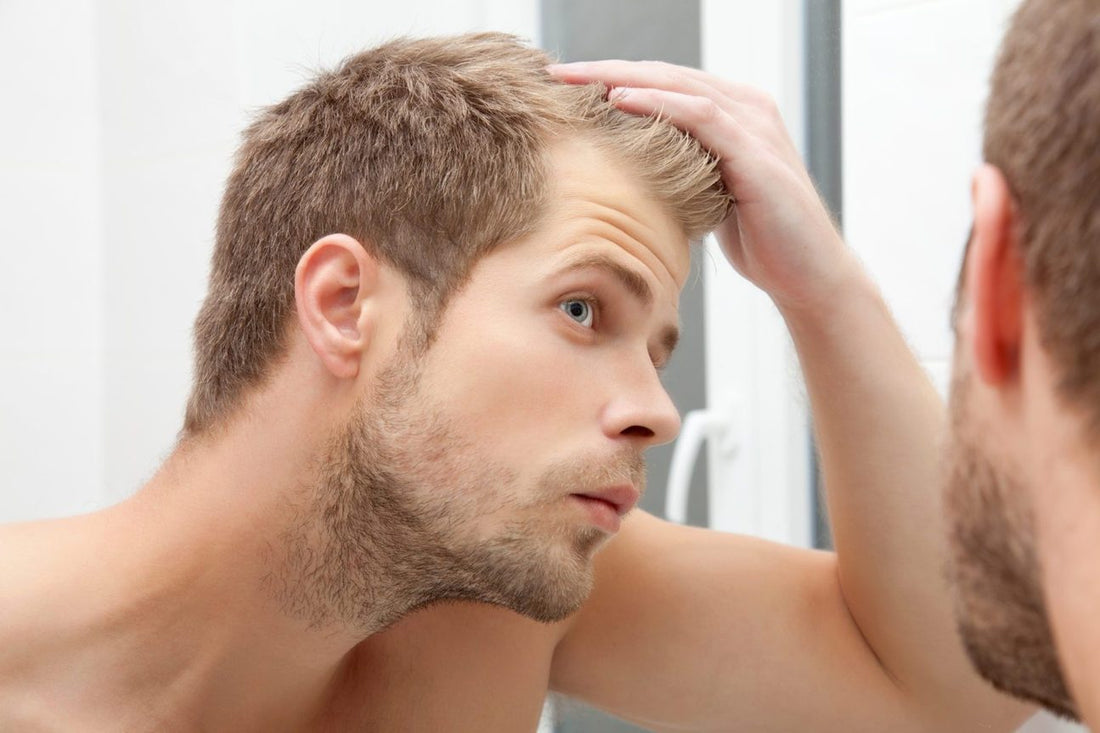Navigating Hair Loss in Your Early Twenties
Reviewed by Zang and Ridwan
Hair loss in your early 20s can trigger panic and depression. You're supposed to be at your healthy peak, your most attractive, your best self.
And yet the shower drain reveals strands of hair disappearing into the bath, your comb knots of hair that should've remained on your head and the mirror, thinning areas that had once been thick and full.
What can cause such a moment of despair for one that is supposed to be in
their physical prime? A change in hormones, improper diet, stress,
unhealthy hair habits, genetics, medical conditions, illness, and even
cosmetic procedures such as bleaching or perming hair can answer this
concern.
Many people assume hair loss is a problem that primarily
affects older men and even fewer older women, and while there is some truth to
that, hair falling out and thinning hair can affect men and women of any
age.
Basically, thinning hair and hair loss at a young age is more
common than you might think: an estimated 40% of men will have noticeable
hair loss by age 35, and an estimated 40% of women will have visible hair loss
by the time they are 40.
While hair loss at a young age can be alarming, it’s important to remember that the earlier thinning hair is noticed and any potential issue is diagnosed, the easier it may be to treat. Scalp micropigmentation is one of the treatments offering a non-invasive solution for those looking to address hair loss and restore a fuller appearance.
Look and Feel Your Best with SMP – Schedule a Consultation!
Hair Loss For Young Women
Hair loss can happen for all sorts of reasons, for example, it can be related to diet, exercise, illness, stress, disease, or hereditary causes.
For younger women, thinning hair is usually a result of poor nutrition, stress, disease, or changes in medications, like birth control.
Crash diets, weight loss, and low iron levels are all reasons why you may notice hair falling out or changes to hair growth. Make sure you are eating healthy foods for hair growth and exercising regularly to help yourself avoid this. A poor diet is the easiest thing to change when it comes to preventing hair loss.
Diseases more common to women, such as thyroid disease and lupus, are also culprits that contribute to hair loss. If you notice other symptoms besides thinning hair, consult with a doctor to find out what the issue could be.
Oral contraceptives can also contribute to hair loss. The hormones in birth control that suppress ovulation can sometimes cause thinning hair and hair loss.
Hair Loss for Young Men
Thinning hair and hair loss in younger men is usually a result of alopecia, but it can also be brought on by poor nutrition and stress.
Men have more DHT than women in their body. Since hair loss is a result of the hair follicles’ sensitivity to DHT, thinning hair and hair loss often begins at an earlier stage for most men than women. For those experiencing this, scalp micropigmentation offers a cosmetic solution, creating the appearance of fuller hair by applying natural pigments to the scalp.
Again, a healthy and well-balanced diet, is essential for helping combat thinning hair problems.
Overall, hair loss in your early 20's shouldn't cause undue stress. It's a lot more common than we think. Take a deep breathe, relax and contact your doctor first. Follow the steps they recommend and see if improvements can be made. Test medications and less invasive solutions first and go from there. Consider scalp micropigmentation as well for an affordable, fast and natural solution.
Contact Us for SMP Services!
